How To Get Rid Of (And Prevent) Chin Acne
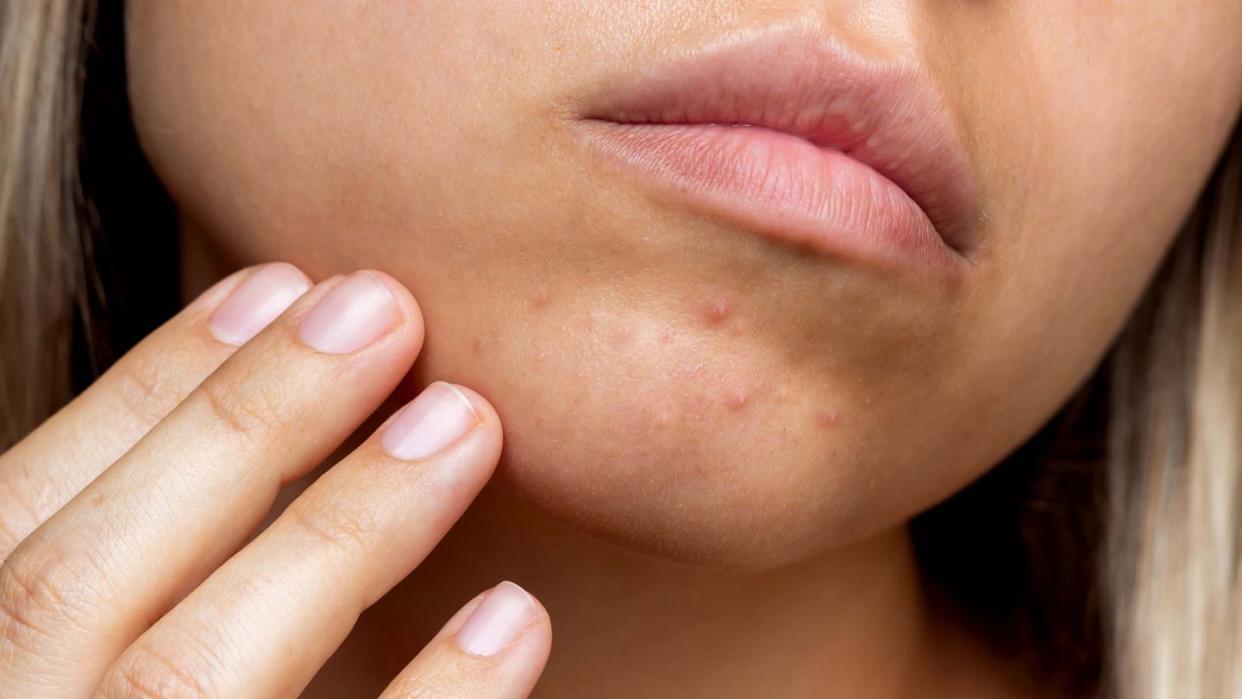
"Hearst Magazines and Yahoo may earn commission or revenue on some items through these links."
Sometimes, just when you think you've left the pimple phase of your life behind in high school, a giant zit appears right below your lips out of nowhere (you know that kind you just can't resist popping at home). Or perhaps a cluster of painful red bumps has popped up along your jawline seemingly overnight. Whatever the situation, breakouts unfortunately can strike at any time in your adult years, and for women, chin acne in particular can be a challenge to looking and feeling your best.
That’s because the chin has lots of oil glands, making it a prime spot for clogged pores and a breeding ground for bacteria. Add stress, poor diet choices from time to time, and potential hormonal acne to the equation, and you’ve got a recipe for repeated breakouts.
Not to worry though; chin acne is something dermatologists have been treating for years. So we went straight to the source to get the low-down on what causes chin acne, how to treat it, and what you can do to prevent it from occurring in the first place.
Meet the experts: Carmen Castilla, M.D., is a New York City-based, board-certified dermatologist with the New York Dermatology Group. Azadeh Shirazi, M.D., is a board-certified dermatologist at La Jolla Laser Dermatology in San Diego, California. Hadley King, MD, is a board-certified dermatologist at Hadley King Dermatology.
What causes chin acne?
Like acne elsewhere on the face, a handful of different factors may contribute to chin breakouts. “Acne generally is affected by diet, lifestyle, hormones, bacteria, genetic factors, stress levels, and skin hygiene routines,” says Carmen Castilla, M.D., a New York City-based, board-certified dermatologist with the New York Dermatology Group. Some of these root causes—like genetic predisposition, for example, and even stress to a certain extent—can be totally out of your control. Other causes of chin acne include:
Diet
When it comes to what you put into your body, certain foods are more likely than others to trigger acne. “Foods shown to flare acne are cow’s milk (specifically skim milk), sugars, and artificial sweeteners, which [all] elevate insulin levels,” says Azadeh Shirazi, M.D., a board-certified dermatologist who practices at La Jolla Laser Dermatology in San Diego, California. “Elevated insulin increases circulating cortisol levels that bind to our sebaceous glands, increasing oil (sebum) production.” Excess oil leads to clogged pores, which can create pimples.
Similarly, even though certain protein shakes, smoothies, or bars seem like they’d be a smart choice post-workout or as a meal replacement from time to time, it’s possible you could have a sensitivity to whey, which can, in turn, also cause pesky spots to pop up on your chin. “Whey protein can increase the production of a hormone called insulin-like growth factor 1, which revs up oil production and leads to acne flares,” says Dr. Shirazi.
Hormones
Hormones can play a significant role in causing chin acne, too. “Women whose acne tends to flare around their menstrual cycle have a larger hormonal component to their acne,” says Dr. Castilla. “This does not mean there is a measurable hormonal imbalance; it is typically a skin sensitivity to normal hormonal fluctuations.”
Hormonal blemishes can usually be identified by their clustered, cystic appearance—often red, inflamed, and filled with pus—as well as the fact that they can cover large patches, or areas, of the chin.
“This type of acne may also extend along the jawline and neck, typically flaring a week before menstruation,” says Dr. Shirazi. Hormonal acne doesn’t operate in a vacuum either. “It’s often exacerbated by lack of sleep, stress, and diet,” adds Dr. Shirazi.
PCOS
While PCOS is somewhat of a sub-category to hormone-related chin acne, there are still a key difference worth calling out. "People with PCOS often have irregular periods and their cycles aren't as well defined which means they're likely to have increased acne in a less predictable way," explains Hadley King, MD, a board-certified dermatologist. This can also lead to acne on the chest and back, per Cleveland Clinic.
Maskne
Whether you want to protect your self or others from getting sick, it's possible that wearing a mask can lead to chin acne. Sure, masks are not worn nearly as often as they once were, but some folks still use them regularly. "[Masks] can also aggravate rosacea even more than regular acne because people who are rosacea-prone have more issues with the skin barrier and that extra humidity and occlusion provided by the mask are more likely to be an issue," explains Dr. King.
Using products with pore-clogging ingredients combined with the extra sweat and oil production that comes from wearing a mask can play a role as well. To prevent breakouts, Dr. King recommends cleansing your skin before and after wearing a mask and wearing it intermittently, if possible. Already having a flare up? Try layering a serum with salicylic acid before putting on your mask.
How to treat chin acne
Because chin acne can have several underlying causes, you’ll want to adopt a multi-faceted approach to its treatment. For example, you can use a product to kill acne-causing bacteria, use a retinoid or exfoliator (if tolerated) to unclog pores, improve your diet, and use skin care that will help repair your skin barrier, says Dr. Castilla.
Luckily, several of the tried-and-true, heavy-hitting ingredients you’re likely familiar with for healing acne elsewhere on the face and body can be used on the chin and in some form of combination, too, so long as layering doesn’t further irritate your skin. Here are a few solutions to consider.
Try a salicylic acid-based product
If your skin is on the sensitive side, you might fare better with something like CLn acne wash, which has a low concentration of salicylic acid to help exfoliate and decrease sebum production. “More importantly, it contains sodium hypochlorite, which kills the bacteria that causes acne,” says Dr. Castilla. Exfoliation, with a salicylic acid-based product or otherwise, is crucial to prevent and manage chin blemishes; Dr. Shirazi says this step can prevent buildup of dead skin cells, unclog pores, control oil, and help reduce inflammation after a breakout starts.
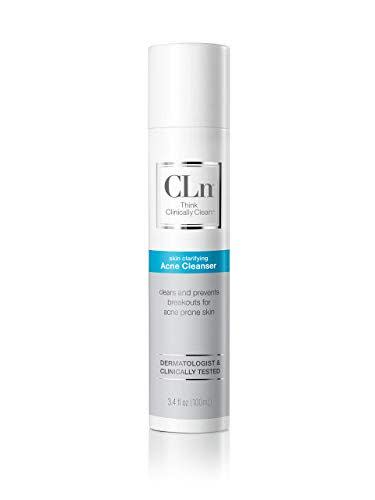
Acne Cleanser
amazon.com
$35.00
amazon.comConsider benzoyl peroxide
A March 2024 report from Valisure stated that some products contain high levels on benzine, which could be linked to increased cancer risk. This has led to some dermatologists re-evaluating how benzoyl peroxide should be used. "Some dermatologists are recommending prescription versions of benzoyl peroxide since it's been tested more for stability versus over-the-counter (OTC) options," says Dr. King. "Others are okay with it but ask patients not to store it in the shower where there's heat, which can accelerate the breakdown of [the product]."
With regards to the bacteria-killing phase of a given treatment plan, Dr. Castilla recommends trying a benzoyl peroxide face wash or a gel as a spot treatment. “Bacteria that causes acne cannot develop resistance to it with continued use,” says Dr. Castilla. “Stick with a formulation that is five percent or less. Anything with a higher concentration is more irritating but not necessarily more effective.”
Or hypochlorous acid
Hypochlorous acid is antimicrobial and has been shown to help with wound healing, says Dr. King, who recommends it over tea tree oil. There are minimal risks to using it, and it's a great option for those who have eczema or psoriasis because it combats inflammation, per Cleveland Clinic. Plus, it doesn't bleach clothing, and it's less irritating.
Use a retinoid
Once you’ve attacked the acne-causing bacteria, your treatment plan should kick into the resurfacing phase with an OTC retinoid, if you’re able to use one without experiencing a significant reaction to it. “OTC retinoid Adapalene 0.1 percent gel can help prevent acne and also improve the marks left behind,” says Dr. Castilla. “It can be very irritating initially, so be sure to use only a small amount, moisturize after, and start only a few times per week.”
Adapalene Acne Treatment Gel
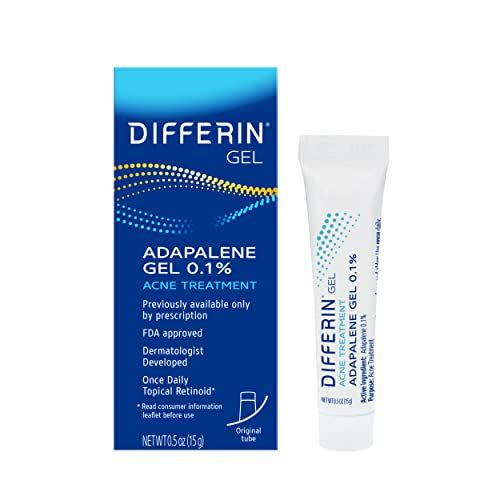
Adapalene Acne Treatment Gel
amazon.com
$14.97
amazon.comEffaclar Adapalene Gel 0.1% Topical Retinoid Acne Treatment
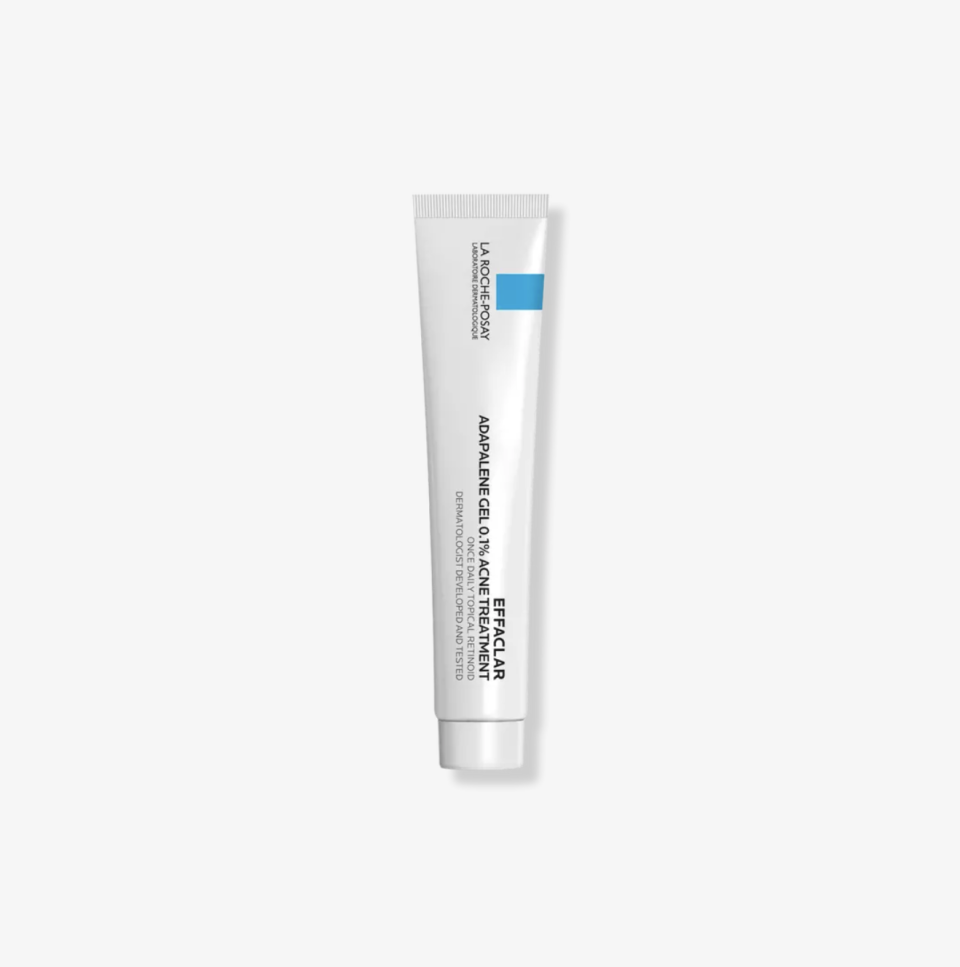
Effaclar Adapalene Gel 0.1% Topical Retinoid Acne Treatment
ulta.com
$36.99
ulta.comAdapalene Gel 0.1% Acne Treatment
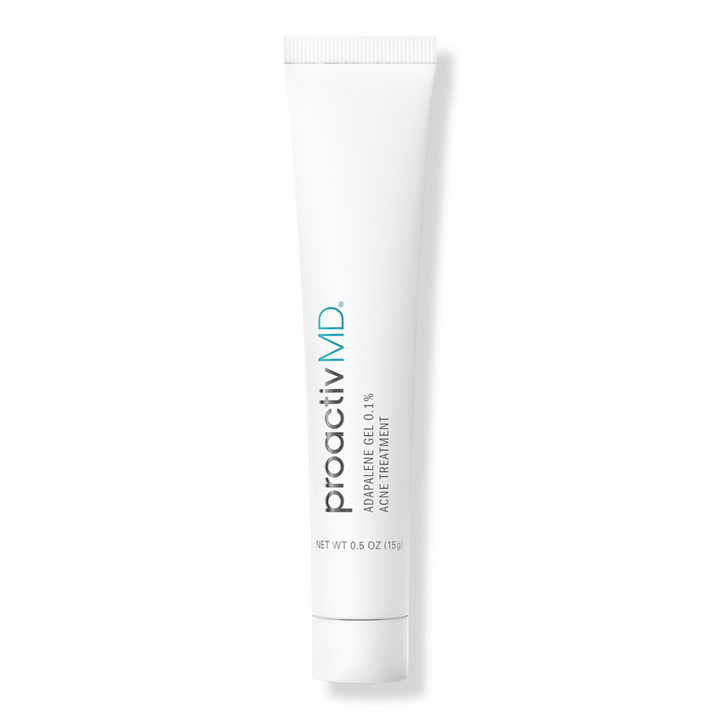
Adapalene Gel 0.1% Acne Treatment
ulta.com
$36.00
ulta.comAsk for a prescribed oral or topical product
When it comes to recurring chin acne or hormonal cystic acne on the lower face, the stakes are considerably higher than just an isolated zit or two, so if your acne is more severe, you may want to visit a dermatologist who can prescribe oral or topical antibiotics or retinoids (like tretinoin, tazarotene, and aklief), which should be introduced slowly to prevent irritation and acne purge, according to Dr. Castilla.
Other prescriptions include Clascoterone (winlevi), a topical androgen blocker thought to reduce sebum production, and Spironolactone, an oral pill that works on the hormonal component of acne. Again, you’ll want to consult a doctor here to see what might be the best fit for you.
Try spot treatments
Clearing up chin acne can take time, and hormonal breakouts in this area can be especially persistent. “Spot treatments are generally slow to work, and with cystic pimples, even if you use a spot treatment you are likely to still have a residual mark after a pimple resolves,” says Dr. Castilla. “Isotretinoin is another option for those with severe acne that is not responding to first line acne treatment regimens.”
You can also try pimple patches for treating stubborn chin zit. Just keep in mind that patches are not a kind of preventative care. Instead, they tackle blemishes that are already at the surface of your skin.
La Roche-Posay Effaclar Duo Dual Action Acne Spot Treatment Cream with Benzoyl Peroxide Acne Treatment for Acne and Blackheads, Lightweight Sheerness, Safe For Sensitive Skin,0.7 Fl Oz
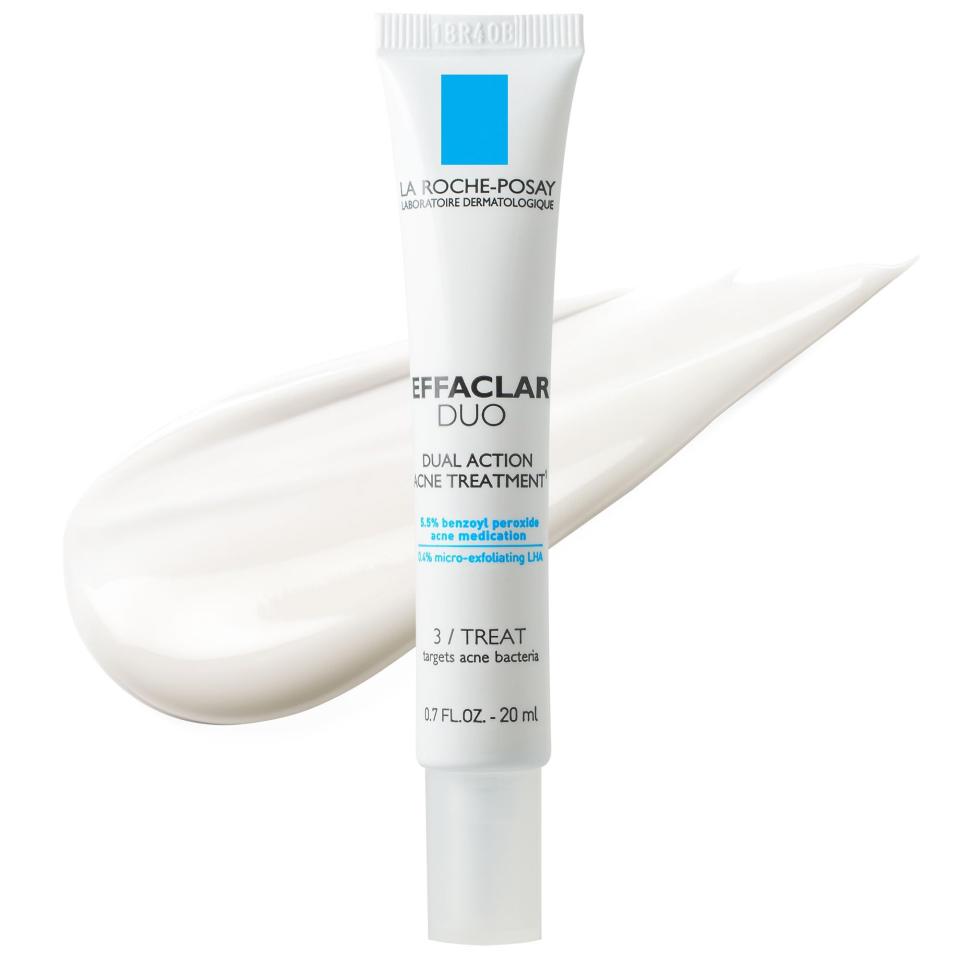
La Roche-Posay Effaclar Duo Dual Action Acne Spot Treatment Cream with Benzoyl Peroxide Acne Treatment for Acne and Blackheads, Lightweight Sheerness, Safe For Sensitive Skin,0.7 Fl Oz
amazon.com
$20.99
Effaclar Duo Dual Action Acne Spot Treatment Cream

Effaclar Duo Dual Action Acne Spot Treatment Cream
amazon.com
$20.99
Hero Cosmetics Mighty Patch™ Original Patch
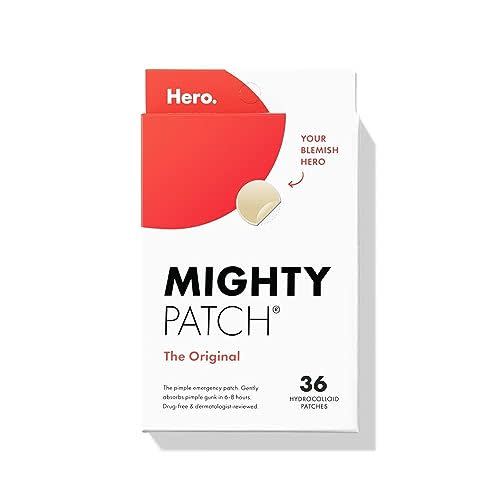
Hero Cosmetics Mighty Patch™ Original Patch
amazon.com
$10.77
Drying Lotion
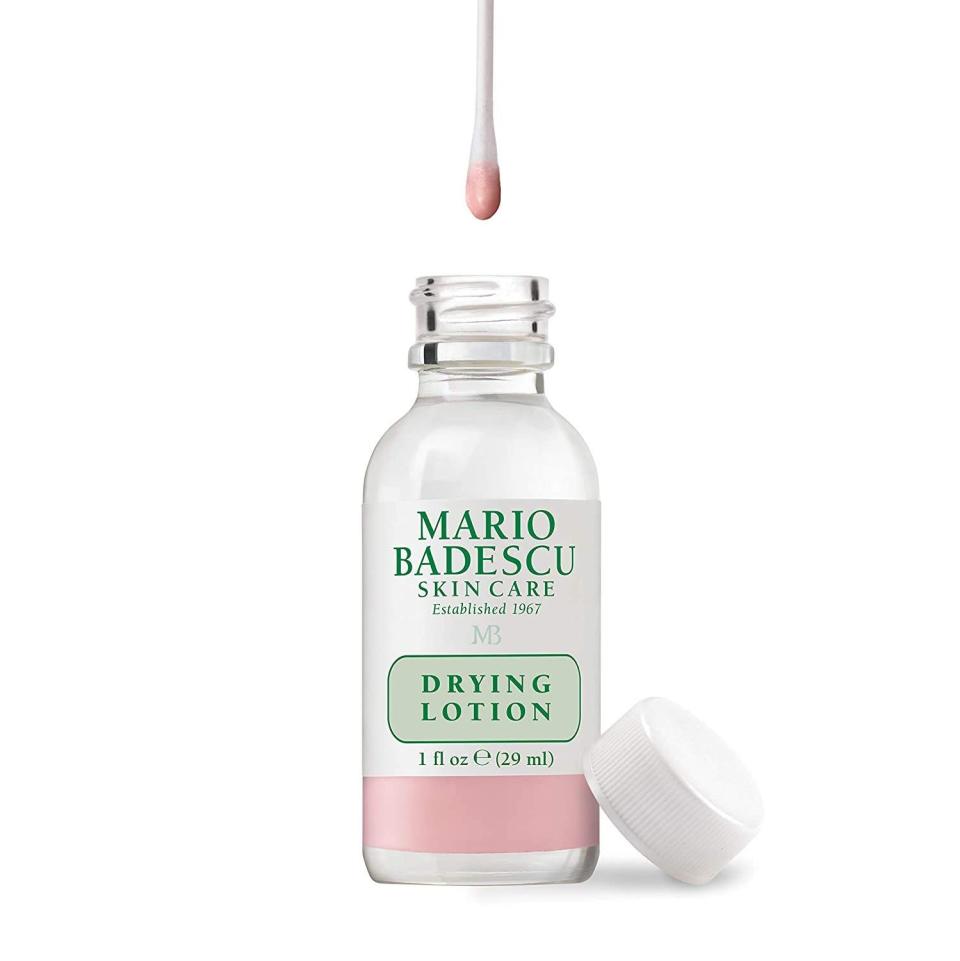
Drying Lotion
amazon.com
$17.10
Skincare Acne Dots
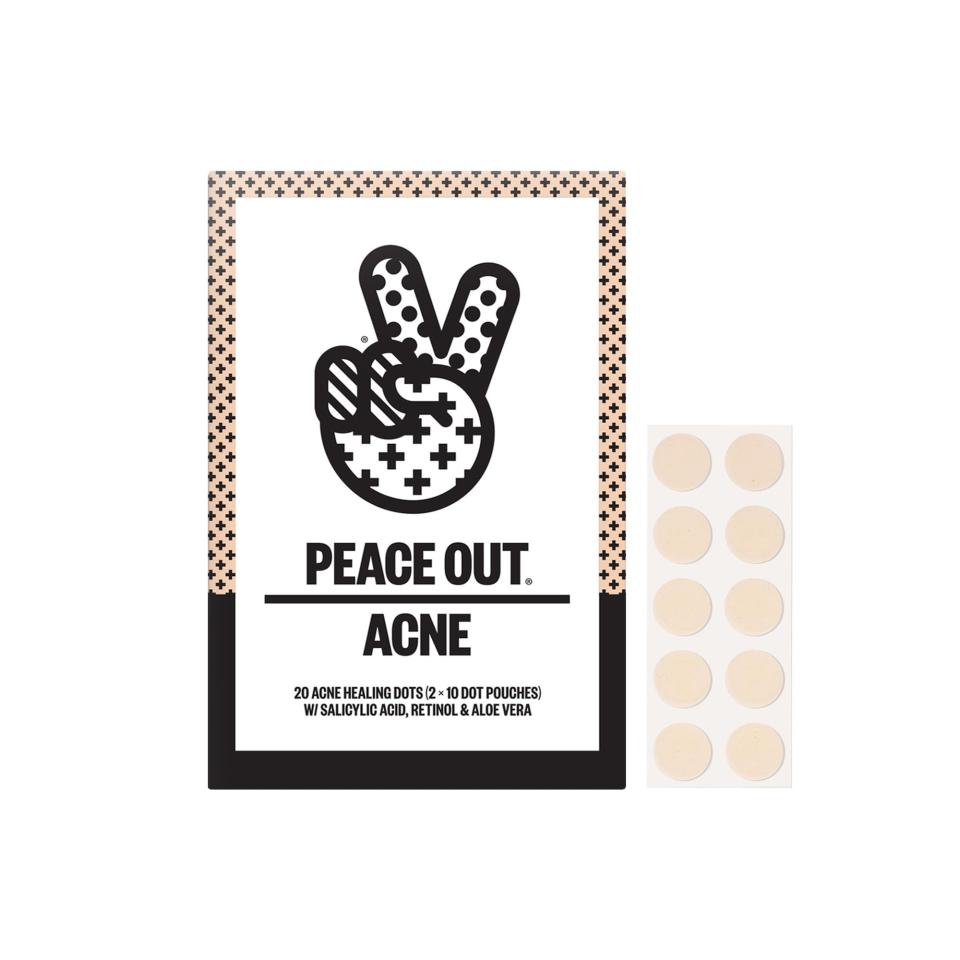
Skincare Acne Dots
amazon.com
$17.10
LED Therapy
LED therapy is a hot topic right now, and with good reason. "The idea is that the blue can help kill the bacteria that contributes to acne while red light can assist with inflammation," says Dr. King. If you plan on giving LED devices a try, just know that the results will vary from person to person, and it typically takes a few months to see any improvement. Still, Dr. King notes that there isn't a ton of research backing up all the claims. "I don't think it's harmful if you want to try it, but I can't promise that you'd see results," she says.
Will chin acne go away on its own?
For the most part, your acne will come and go on it's own—especially if it's hormone-related. Still, that doesn't mean you shouldn't take action to treat it. "If you're just getting the occasional flare up before your period, and it's manageable with at-home treatments, it should be fine," says Dr. King.
However, if you're not satisfied with the level of control you're getting over your acne with OTC options or you're experiencing scarring, you can go see your dermatologist to explore other options. They may suggest a cortisone injection or laser treatment, which can make the healing process quicker.
How to prevent chin acne
Stopping chin acne from occurring is much easier than trying to deal with the blemishes once they’ve formed. For Dr. Shirazi, it’s all about staying consistent with a solid skincare routine that includes many of the aforementioned elements, from exfoliating with a salicylic product one to two nights a week to using retinol at night as tolerated and spot treating acne-prone areas with benzoyl peroxide in the morning after cleansing.
Of course, moisturizing is key, too; it supports and bolsters the skin barrier, which can help to keep bacteria at bay and is super-important with hormonal acne, when your skin’s riding the wave of hormonal fluctuations. Dr. Shirazi also warns against over-exfoliating and stacking too many active formulas together, which can further aggravate the skin. Similarly, as tempting as it may be to touch, pop, or pick your pimples, just don’t do it.
“Avoiding too much friction and rubbing and reducing skin irritation is important in all types of acne,” says Dr. Shirazi. You’ll also want to steer clear of cosmetics or skincare known to clog pores, and washing your makeup off thoroughly every day is a must, too.
Similar to treating breakouts, prevention also includes an element of finding balance with your lifestyle choices. “Sticking to a healthy diet with a high and varied amounts of fruits and vegetables, limiting sugar/refined carbohydrates/dairy, and managing stress can potentially help prevent acne from forming in the first place,” says Dr. Castilla.
That being said, you can do everything "right," she says, and acne will still flare up from time to time. “Regardless, stay positive,” says Dr. Castilla.”With so many treatment options available, by working with a board-certified dermatologist, you will find a resolution.”
You Might Also Like

